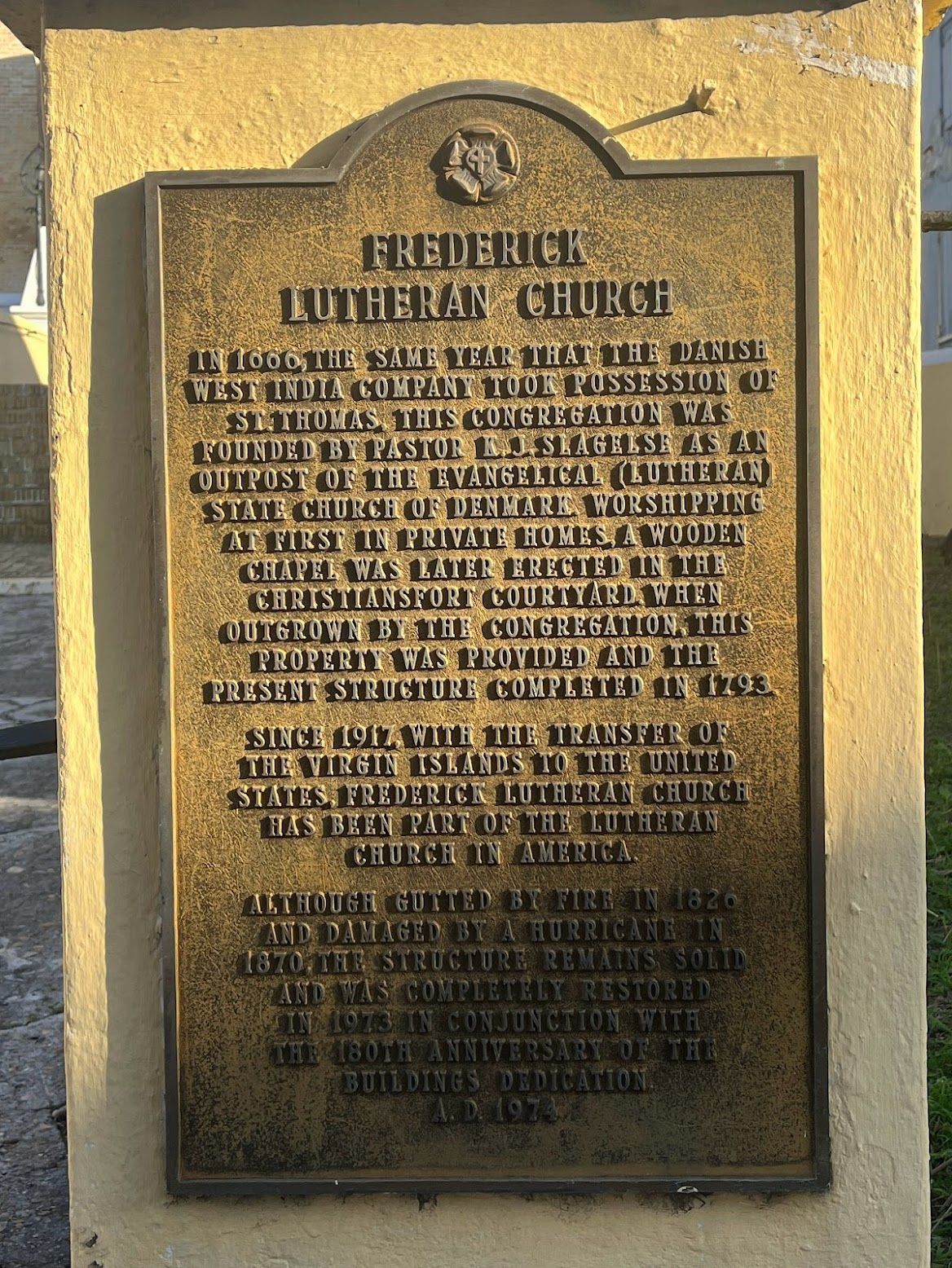What It Means To Be A Lutheran In An Election Cycle
Faithfully Navigating Politics With Grace And Conviction

Right now we find ourselves in an election cycle that brings with it excitement, uncertainty, and division.
As political advertisements flood our screens and conversations heat up around family dinner tables and on social media, it can be difficult to know how to engage as a person of faith. You share these challenges and concerns with me in the receiving line at worship on Sundays! For Lutherans, the principles of our faith provide a strong foundation to guide us through this complex and often polarized time.
Martin Luther, though living in a much different time, offered insights that can help us reflect on how to approach politics today. His teachings on vocation, the two kingdoms, and love for our neighbor provide wisdom that we can use today.
Remember Your Identity In Christ
Before diving into the issues and candidates, it's essential to remember who we are in Christ. Our primary identity is not found in a political party, ideology, or nation, but as baptized children of God. This truth gives us both confidence and humility as we engage with the world around us.
As Lutherans, we believe we are saved by grace alone through faith in Christ. This means that our ultimate hope is not in earthly rulers or political systems, but in the eternal reign of Christ. While we are called to participate in the world and seek justice, we do so with the knowledge that God’s kingdom will endure beyond any election or political shift.
Luther’s Two Kingdoms: Keeping Perspective
One of Luther’s key teachings is the concept of the two kingdoms—the kingdom of the left (the secular world, including government) and the kingdom of the right (God’s spiritual rule through the Church). Luther believed that God works in both kingdoms, but in different ways.
The kingdom of the left is where we engage in public life, government, and the rule of law. Luther understood that earthly authorities are necessary to maintain order, justice, and peace. Voting, participating in government, and advocating for laws that protect the vulnerable are ways we engage in this realm.
The kingdom of the right, however, is where God rules through grace and forgiveness. It is where the Church proclaims the gospel and cares for souls. Our ultimate hope lies in God’s spiritual reign, which transcends any political system.
This distinction helps us keep perspective during an election cycle. While we take our civic responsibilities seriously, we remember that political outcomes, though important, do not determine our salvation or the final reign of God. We are freed from placing ultimate trust in political leaders, knowing that Christ is our true King.
Love Your Neighbor Through Your Vote
Luther’s emphasis on vocation reminds us that we are called to love and serve our neighbor in every aspect of life—including politics. Voting is one way we can act out our vocation of caring for others. As Lutherans, we approach the ballot box not only with our own interests in mind, but also with concern for the common good, especially for those who are vulnerable or marginalized.
Luther’s teaching on loving our neighbor can guide us in asking critical questions when we engage with political issues:
–How will this policy affect those in need?
–Does this candidate's platform uphold the dignity of all people?
–How can my vote contribute to a more just and compassionate society?
Voting with love for our neighbor means we don’t only focus on what benefits us personally, but also what serves the greater good, particularly for those who are often overlooked or disadvantaged.
Engage with Civility and Grace
Election cycles often bring out the worst in public discourse. Political debates can quickly turn into heated arguments, and social media can be a breeding ground for hostility and division. As Lutherans, we are called to engage in political discussions with both conviction and grace.
Luther famously said, “We are all beggars before God.” This reminder of our shared human need for grace can help us approach political conversations with humility. No matter how strongly we feel about an issue, we are called to see others as fellow children of God, even if we disagree with them.
Here are some practical ways to practice civility during an election season:
–Listen before responding: Make an effort to understand the perspectives of others, even if you disagree. Listening shows respect and opens the door to meaningful conversation.
–Avoid demonizing opponents: In the heat of political debate, it can be easy to reduce people to caricatures of "the other side." As Lutherans, we are called to see the humanity and dignity in everyone, regardless of political views.
–Speak with grace: When we do engage in political discussions, we can choose words that build up rather than tear down. Remember Luther’s explanation of the Eighth Commandment: “We should fear and love God so that we do not tell lies about our neighbors, betray them, slander them, or hurt their reputation, but defend them, speak well of them, and explain everything in the kindest way.” This applies even in politics!
Pray For Leaders And The Nation
Paul writes in 1 Timothy 2:1-2, "I urge, then, first of all, that petitions, prayers, intercession and thanksgiving be made for all people—for kings and all those in authority, that we may live peaceful and quiet lives in all godliness and holiness."
As Lutherans, we are called to pray for our leaders, whether we agree with them or not. This includes praying for wisdom, guidance, and integrity for those in authority. During election seasons, we can also pray for our nation as a whole—that our decisions might promote justice, peace, and the common good.
Trust In God’s Sovereignty
Finally, election cycles can be stressful and uncertain. We may feel anxiety about the future or frustration with the political process. In these moments, we can take comfort in the sovereignty of God. No matter the outcome of any election, God is still at work in the world, bringing about God’s purposes.
Martin Luther lived during a time of great political and religious upheaval, yet he consistently trusted in God’s control over history. As Lutherans, we are called to do the same. While we actively participate in our civic responsibilities, we rest in the knowledge that God’s kingdom is eternal and will not be shaken by any earthly power.
Being a Lutheran during an election cycle means engaging in politics with faith, love, and grace. It means remembering that our identity is in Christ, not in political parties. It means voting with concern for our neighbor, listening to others with respect, and trusting in God’s ultimate reign. While political seasons may come and go, our calling to live out our faith remains constant.
In the midst of campaign slogans and debates, please remember that our ultimate hope is in the gospel. As we navigate this election season, let’s reflect the love of Christ in all we do, including our political engagement.
In Christ’s Love,
Pastor Marissa Becklin












